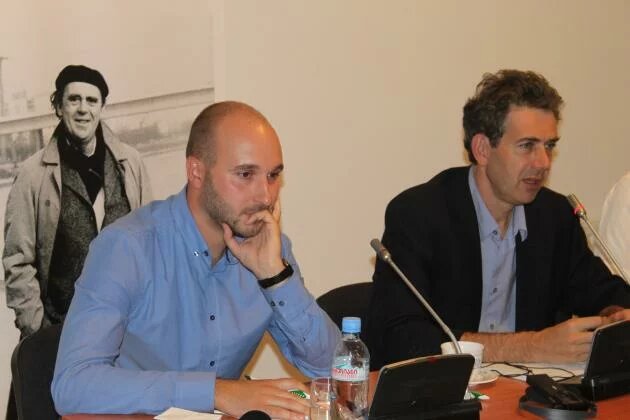
18 September, 2012
What hinders resolution of the conflicts in the South Caucasus, especially since there is no fundamental problem of ethnic tension between individuals? Thomas de Waal, Senior Fellow at Carnegie Endowment for International Peace states that the people involved in the conflict have nothing against each other. What is the political context that perpetuates differences among the public? How do national ideas serve as the basis for approaches to conflict resolution, and what causes the political culture in which compromise is perceived as betrayal? What is the link between democratic processes in the country and the region regarding conflict transformation, and is the society currently ready to resolve issues that arose during the Soviet era and have developed since the early 1990s?
The Heinrich Boell Foundation’s discussion entitled “Crisis of democratization and transformation of ethno-political conflicts in South Caucasus” addressed a number of key issues. Speakers discussed the conflicts in Georgia, Armenia and Azerbaijan, problems in the North Caucasus, geopolitical issues and strategic interests, and the role of Russia in these processes and possible ways of regulating the conflict. They also debated the factors differentiating these conflicts and their specific problems, perception of the conflicts and vision for their resolution from the public’s perspective, and public order and potential for resolving this conflict. The idea of the Caucasus House, public attitudes and defining narratives, and key findings of research on these topics also received attention in the discussion. Speakers included Marina Elbakidze of CIPDD, Thomas de Waal, Senior Fellow of the Carnegie Endowment for International Peace, Laurence Sheets, Director of the International Crisis Group’s South Caucasus Project, and Giorgi Kanashvili, Executive Director of the Caucasus House.
These speakers raised a number of important questions. As the issue of Georgia’s territorial integrity become less of a priority and if so, how important is this issue for Georgians today? Do we move within an enchanted circle that neglects the Abkhaz population as a nation? Who among the Georgians and Abkhaz should initiate efforts to resolve the conflict? Why have tensions increased in the Pankisi Gorge, and is there a threat of spillover of the conflict from the North Caucasus? What is the interaction between human relations on one hand, and the political context of these conflicts? Why are the conflicts the biggest barrier for the development of the region, and how urgent is it to resolve them on different societal levels? Efforts to answer these questions summarize the issues discussed at this event.